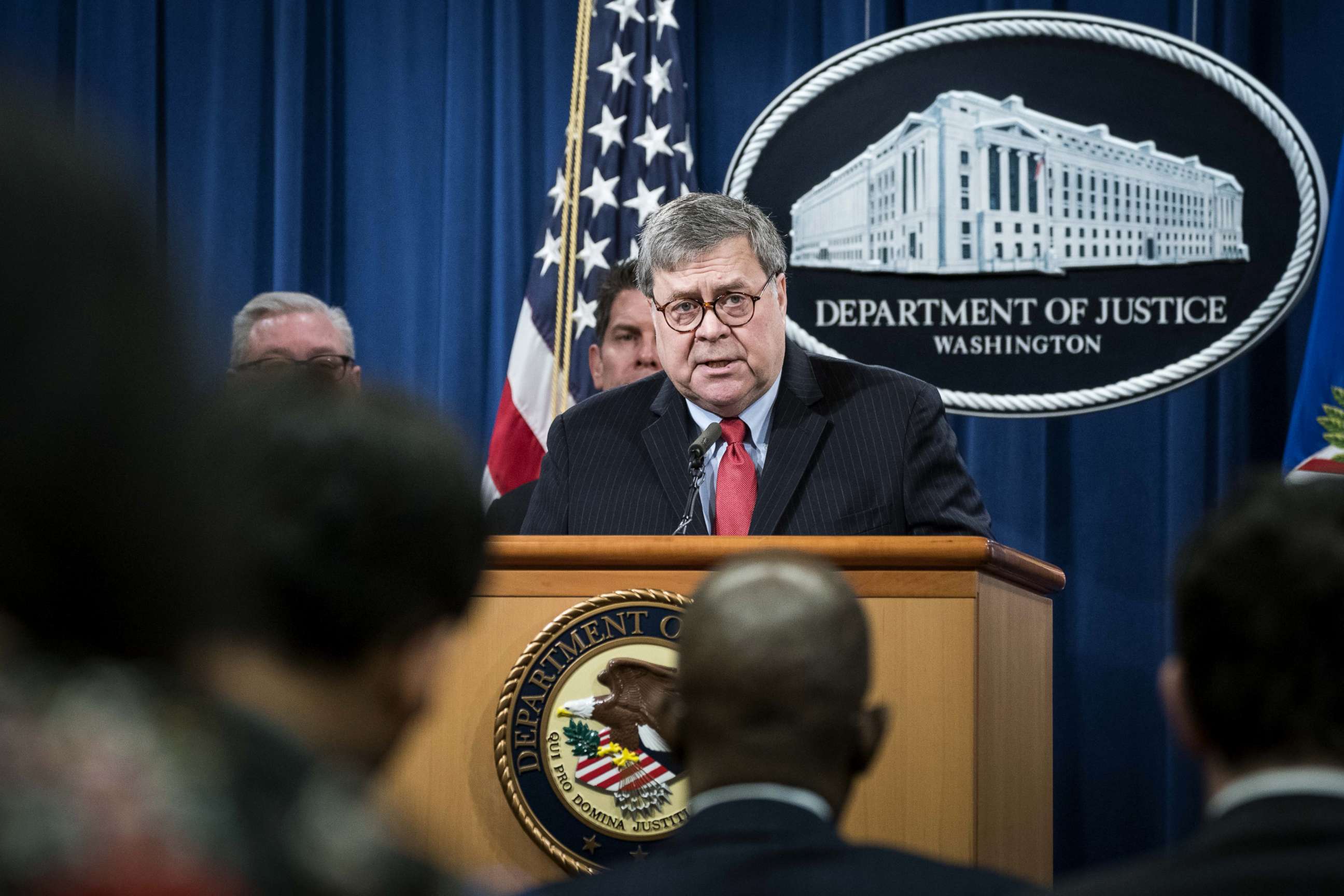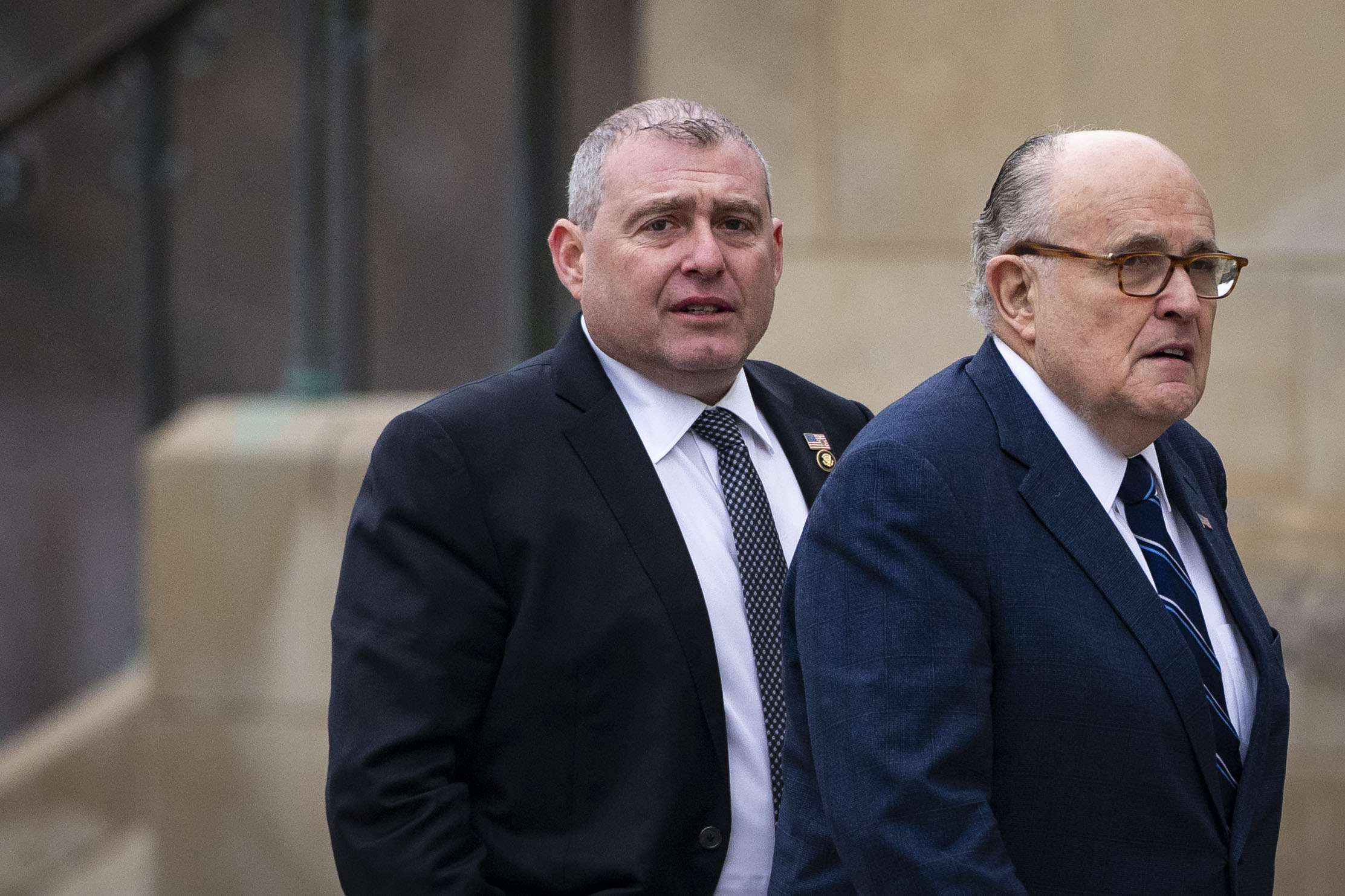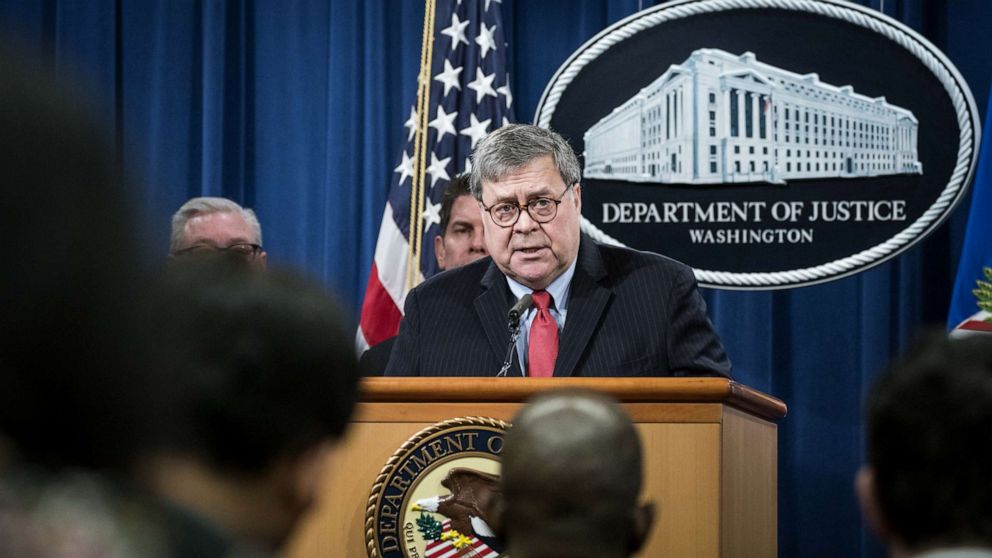AG Barr on DOJ review of Giuliani documents: Info from Ukraine can't be taken at 'face value'
Attorney General Bill Barr confirmed Monday that the Justice Department is reviewing documents about former Vice President Joe Biden provided by President Donald Trump's personal lawyer Rudy Giuliani, while offering a note of caution about the origin of the materials.
"The DOJ has the obligation to have an open door to anybody who wishes to provide us information that they think is relevant," Barr said in response to a question from ABC News. "We have to be very careful with respect to any information coming from the Ukraine."

Sen. Lindsey Graham, R-S.C., the Senate Judiciary Committee Chairman, first revealed Sunday on the CBS program "Face The Nation" that he had been told by Barr that the DOJ had created a "process" for evaluating information provided by Giuliani.
Giuliani has repeatedly alleged that he possesses incriminating information about Vice President Biden related to his son Hunter Biden's work with the Ukrainian gas company Burisma. However there is no evidence that either of the Bidens committed a crime and they are not believed to be under any type of federal investigation related to Hunter Biden's work in Ukraine.
"There are a lot of agendas in the Ukraine, there are a lot of cross currents and you can't take anything you receive from Ukraine at face value," Barr said. "And for that reason we had established an intake process in the field so that any information coming in about Ukraine could be carefully scrutinized by the department and its intelligence community partners so that we could assess its providence and its credibility."
Barr did not answer a question from ABC News about whether he had contemplated recusing himself from any matters related to Giuliani or Ukraine.
In President Trump's phone call with Ukrainian President Volodymyr Zelenskiy that ultimately resulted in his impeachment by the House of Representatives, Trump referenced Barr multiple times in connection with Giuliani and his hopes they would assist in investigations that could benefit him politically.
Throughout the impeachment process, though, Barr sought to keep his distance from the Ukraine matter -- telling associates he was "troubled" by how the president spoke about him on the Zelenskiy call. Barr also, according to sources, advised the president directly that he didn't believe Giuliani was serving him well as his personal attorney.

Federal prosecutors in Manhattan are investigating Giuliani and his connections to two Soviet-born associates, Igor Fruman and Lev Parnas, who were indicted last year on campaign finance charges and their efforts to oust the former U.S. Ambassador to Ukraine Marie Yovanovitch.
In a recording first obtained last month by ABC News, Trump was captured on tape in April 2018 at a gathering with Parnas and Fruman telling the group he would remove Yovanovitch, though she was not recalled from her position until a year after the dinner.
Last week, on the same day as the president's acquittal by the Senate, Barr issued a memo instructing federal law enforcement across the country to first get approval from the top echelons of the Justice Department -- including Barr himself -- before opening any investigations of declared 2020 presidential candidates.
"We must investigate and prosecute those matters with sensitivity and care to ensure that the department's actions do not unnecessarily advantage or disadvantage any candidate or political party," Barr said in the memo.
The memo followed a damning report from DOJ Inspector General Michael Horowitz that uncovered multiple material omissions and instances of misconduct by agents in their surveillance applications targeting former Trump campaign aide Carter Page.
While Horowitz determined that the opening of the investigation of the Trump campaign in 2016 was launched with proper cause, Barr split from that determination and said he is still investigating other matters outside of Horowitz's authorities.
Barr's memo has raised alarm bells among Democrats who have pointed to his past praise of President Trump, and argued he could use the directive to protect Trump from any scrutiny by investigators or selectively authorize investigations of his Democratic rivals in 2020.




